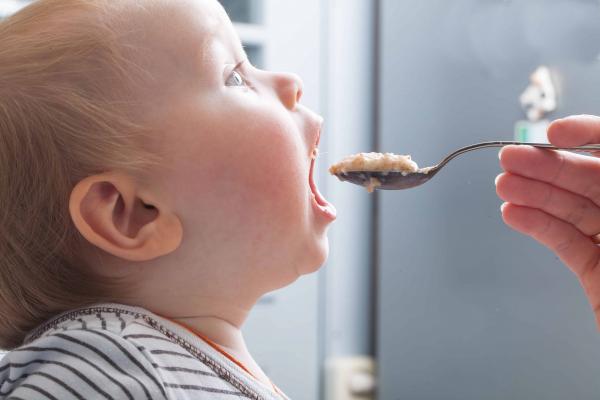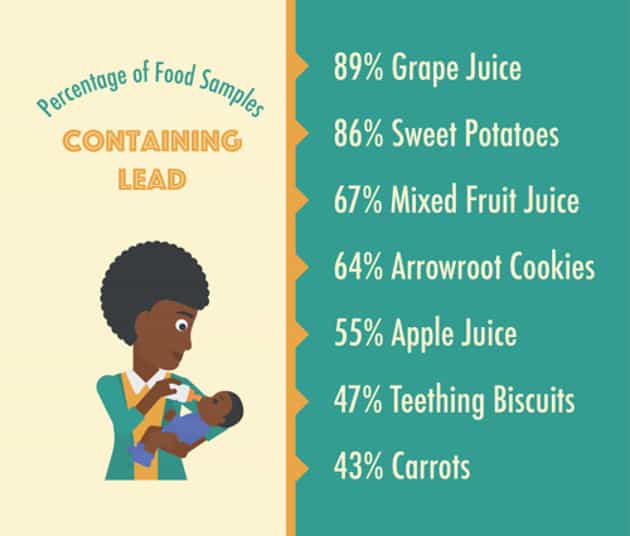
Many parents know that a high lead content isn't something that should be found in your child's toys or anything else that our babies interact with. A surprising new study reports another source of alarmingly high lead content ... and it's found in something we spoon it straight into our babies' mouths.
Tests and research done by the Environmental Defense Fund found significant amounts of lead in over 20% of baby foods.
The most harmful baby foods
Fruit juices, root vegetables and cookies topped the charts for highest lead content in the 2,164 baby food samples EDF examined.
Baby grape juice came in at number one, with 89 percent of the samples containing detectable levels of lead. Next came sweet potato baby food at 86 percent, arrowroot cookies (used for teething) at 64 percent and baby apple juice at percent.
EDF obtained these statistics by evaluating data from the Food and Drug Administration from 2003 to 2013 from the agency's Total Diet Study. EDF focused on the collected data on baby food.
The danger of lead
EDF found that because of this lead exposure in baby food (among other things), more than 1 million children's lead consumption surpasses the FDA's limit.
Long-term exposure to lead can cause serious health problems, especially in young kids, including stomach pain, behavioral problems, anemia and disrupted brain development.
Though no safe level of lead in blood has been officially identified, even very low blood lead levels in children can lower IQ.
What can parents do?
While EDF published their findings with a call for FDA and baby food manufacturers to raise their lead standards and requirements, the danger is still highly prevalent. Until corporations respond to these findings (if they ever do), parents are the only factor standing between lead-laced baby foods and young children.
Of course, this study is not meant to encourage parents to stop buying baby food all together. Instead, there are some simple measures you can take to ensure your child's safety.
1. Cut out the biggest offenders
You can avoid or reduce your child's consumption of the top foods with the highest levels of lead content: baby juices, root vegetables and cookies.
2. Consult with a pediatrician
You can ask your child's pediatrician to test for lead levels at their next check up to see how much lead is potentially in their little system. You can also consult with your pediatrician on different ways to reduce your child's lead exposure.
3. Make more homemade baby food
You can make your own baby food every so often to lower your child's consumption of processed baby foods. Making your own baby food might take a little extra time, but it actually saves a lot of money in the long run.
4. Check with your favorite brands
There's no harm in a phone call or email to your favorite baby food brand's customer service. Ask them about their protocol for lead testing and make sure there is less that 1 ppb of lead in their products.
With the right precautions, parents can keep their kids happy, healthy and clear of lead poisoning.
Download EDF's full report here.


